College of Wooster students: Abortion ban would worsen already failing health care
WOOSTER – Cody Clark stood in front of a growing crowd of nearly 150 students, faculty and community members at the College of Wooster's Kauke Hall Thursday morning.
BLM: Wooster remembers: BLM protests continue 700 days after George Floyd's death
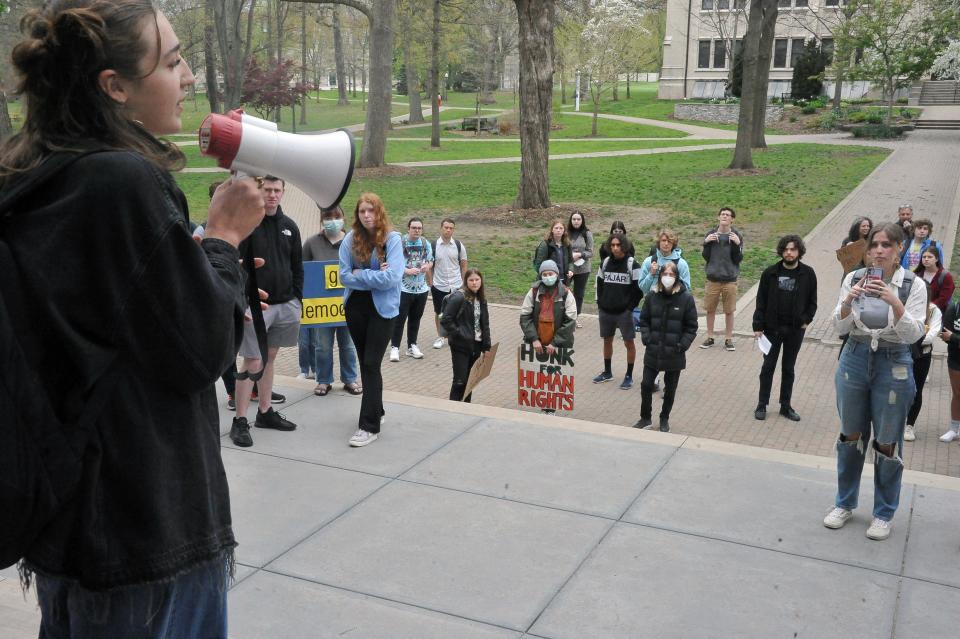
Note: The following quote has been updated since this story published at 4:23 p.m. on May 5.
"Yes, keep your policies off of women's bodies, but keep them off trans and nonbinary bodies too," yelled Clark, a transgender student at the college. "I have a friend who would have died without an abortion."
As abortion rights in the U.S. comes under increasing scrutiny, young people such as Clark are speaking out.
For Clark and other nonbinary, queer, transgender and women students, the leaked draft of a majority Supreme Court opinion that would overturn Roe v. Wade doesn't stop with abortion.
Overturning the lawsuit that led to the 1973 landmark decision that protects abortion rights during the first trimester of pregnancy, threatens contraception, an already poor sexual health education system and access to quality health care for the LGBTQ community and women, he said.
"I'm here out of righteous anger, but am I also here out of love for everyone here and for myself," Clark told the crowd.
Rallying for abortion rights in America
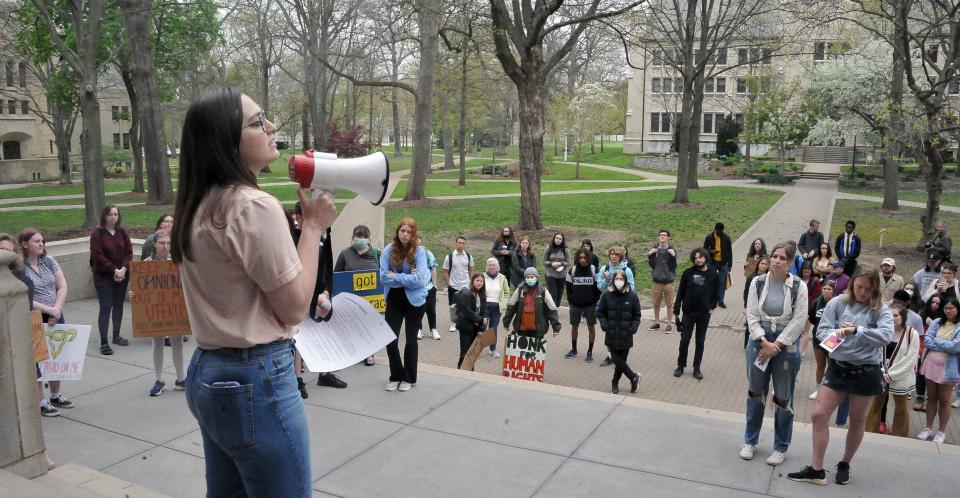
With the uncertainty of what the U.S. Supreme Court might do, many College of Wooster students at Thursday's protest, like Kate Yordy, see a bleak future.
"It feels like a crisis," said Yordy, a fourth-year student. "We believe that abortion bans are wrong."
Asian lives: College of Wooster students lead March for Asian Lives
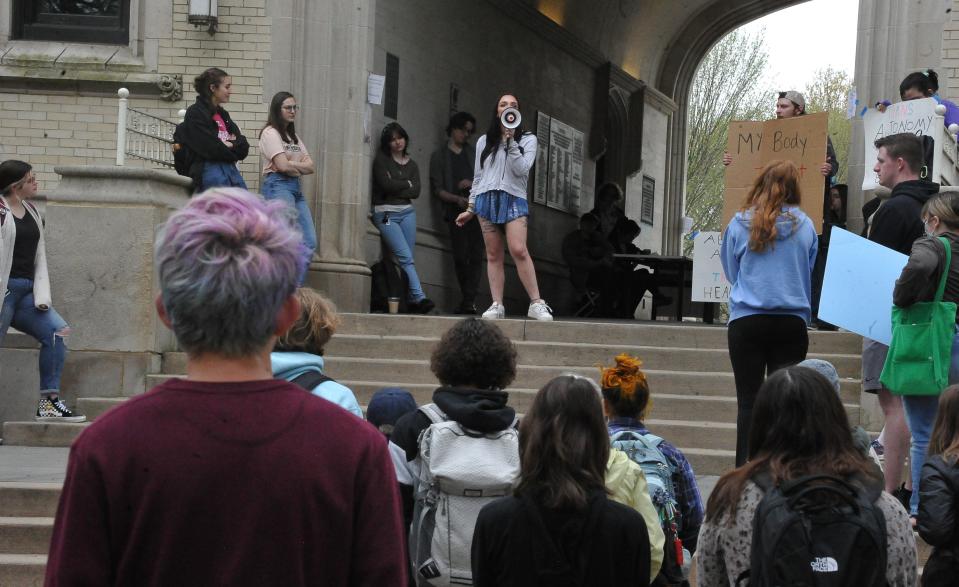
For Yordy and her colleagues, the question of banning abortion doesn't come down to whether abortions will be available; it's about whether or not safe abortions will be available.
Yordy organized the rally with two other students and the help of a couple of faculty members, pasting posters about the protest around campus.
Under the arch at Kauke Hall, she and her colleagues set up two tables during and after the one-hour rally.
One listed contact information to write letters and emails or to call notable state and federal representatives.
Postcards were distributed for attendees to write messages to lawmakers while scripts were available when calling a representative.
At the second table reproductive health care information and reproductive advocacy links were provided.
'We need better reproductive health care and sex ed'
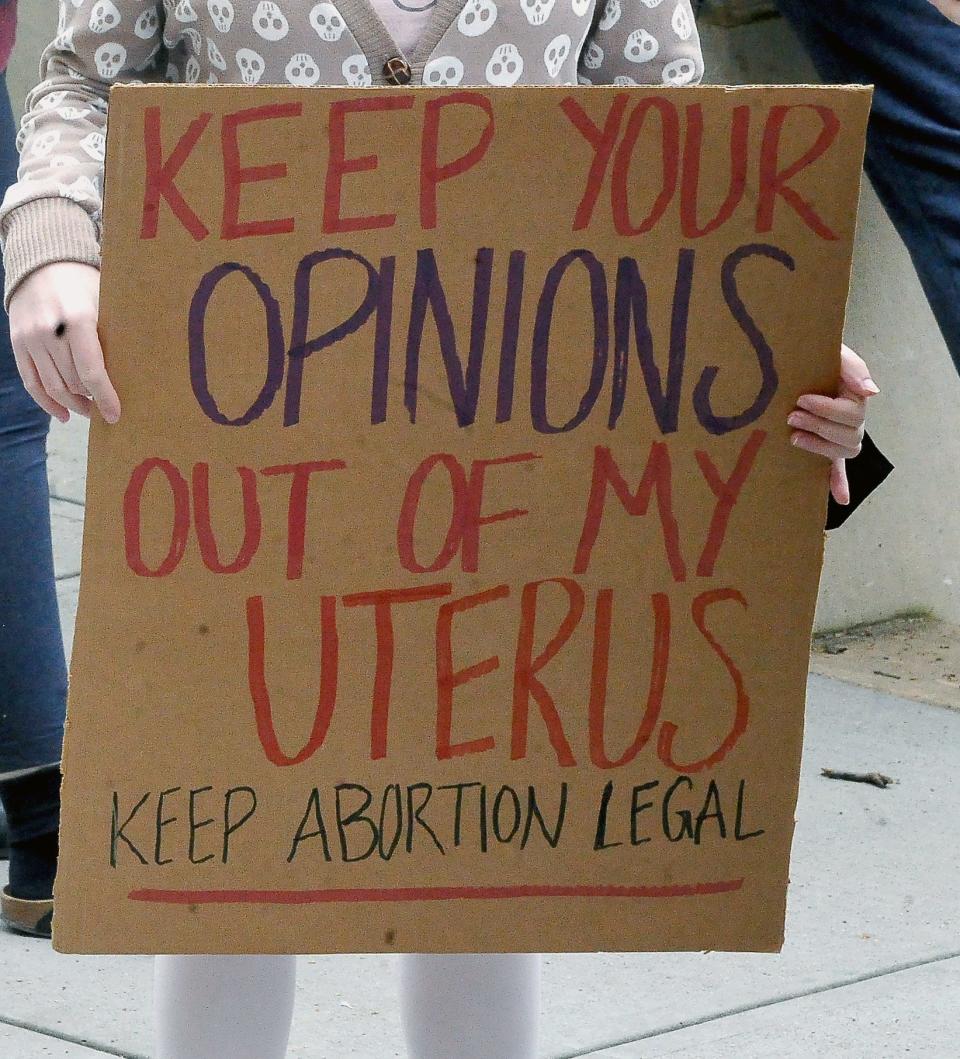
For many college students, the health care and education systems they grew up with are failures, and banning abortion would be another step in a long line of ignoring reproductive health.
Clark attended a private Catholic grade school where he was taught abstinence first and sex education second.
And, he said, sex education was lacking, especially for people with autism or other developmental disabilities.
"I'm also autistic, and as an autistic person I sometimes don't pick up on social cues," Clark said. "I had an autistic friend who was shown how to put a condom on using a banana, so when he had sex for the first time, he put the condom on an actual banana."
After sex health classes, he didn't understand his own male body any more than the female reproductive system.
This was echoed by other students who spoke to the crowd.
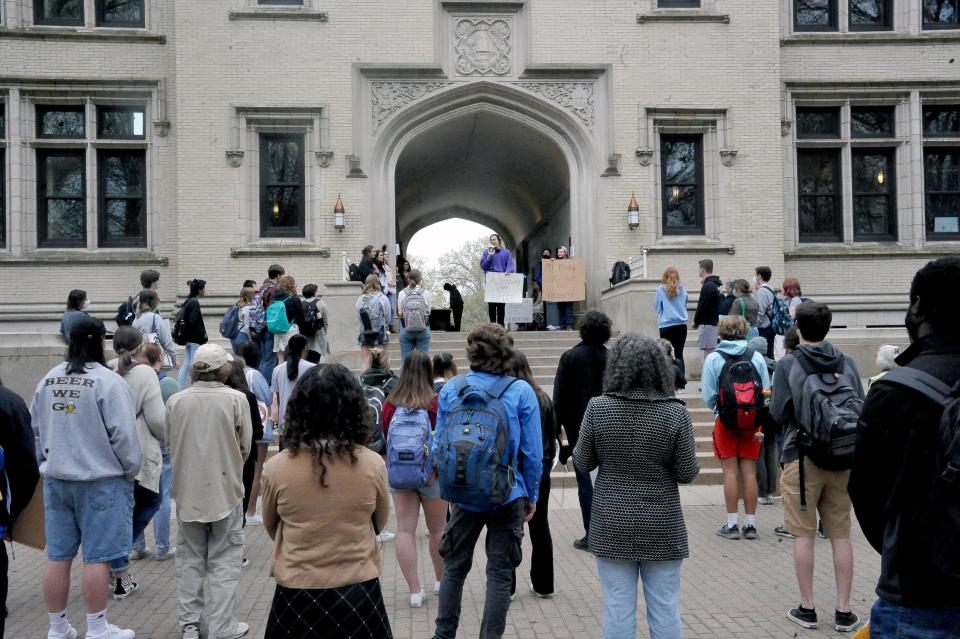
One said she wasn't taught how to manage her menstrual cycle while others said the boys in grade school classes were told to be careful around women during their periods.
"We need better reproductive health care and sex ed," Clark said. "And we must take care of the parent and child.
Without better health care, Rachel Catus does not know how people can prevent unwanted pregnancies, particularly ones caused by sexual assault.
"Sometimes I'm like, 'Thank God I have birth control,' but not everyone can afford that," said Catus, a fourth-year student and event organizer.
If someone has an unwanted pregnancy and can't afford the child or isn't in a stable place to raise a kid, Catus asked, "What do they do?"
Reach Bryce by email at bbuyakie@gannett.com
On Twitter: @Bryce_Buyakie
This article originally appeared on The Daily Record: Students protest leaked Court decision to end Roe v. Wade

